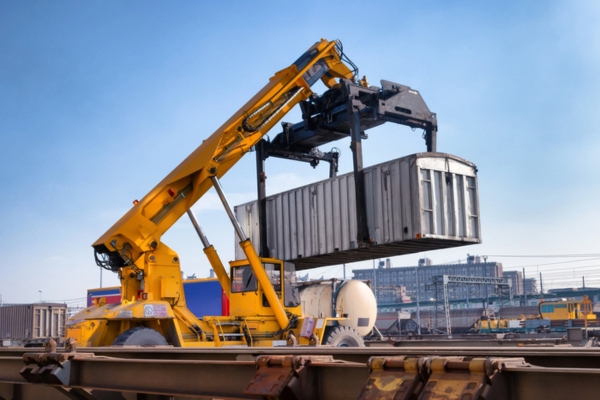Contents [show]
The significance of fuel quality in commercial activities cannot be overstated. Premium fuel quality enhances the efficiency and durability of machinery and vehicles. It also minimizes the likelihood of costly breakdowns and maintenance disruptions that can hinder business operations. Additionally, high-grade fuel is crucial for compliance with environmental regulations and for lowering emissions, aligning with the growing environmental awareness in the business landscape. In this article by Taylor Energy, we explore how fuel quality directly impacts the performance and maintenance of your commercial fuel tank.
The Impact of Your Commercial Storage Tank’s Condition on Fuel Quality
The link between the state of a commercial fuel tank and fuel quality is crucial. Fuel stored in corroded or damaged tanks is susceptible to contamination from rust, bacteria, and other detrimental substances, which can degrade its quality. Regular upkeep and inspection of storage tanks are vital to prevent this. This practice maintains fuel efficiency and reliability and is critical for adhering to safety and environmental standards.
Understanding Commercial Fuel Quality

Fuel quality is a pivotal factor in determining the performance and efficiency of fuel used in engines or machinery. It encompasses the specific characteristics that enable the fuel to function optimally in its intended applications. Central to fuel quality is its purity, which ensures that no undesirable chemicals or substances are present that might damage the engine.
Fuel stability also plays a critical role; it refers to the fuel’s ability to maintain its chemical integrity over time, preserving its quality during storage. Additionally, the level of contamination is paramount; high-quality fuel should contain minimal contaminants like water, dirt, or biological substances, as these can greatly hinder fuel performance and even damage the machinery it powers.
The Significance of Premium Fuel
Utilizing high-quality fuel is crucial for the efficiency and cost-effectiveness of commercial operations. When high-grade products fuel engines and machinery, they operate more effectively, achieving complete combustion and maximizing energy utilization. This leads to enhanced performance and increases the economic efficiency of business operations.
Moreover, employing fuel devoid of harmful impurities and contaminants diminishes the risk of damage to engines and machinery, extending their service life and minimizing the frequency and expense of maintenance and repairs. Essentially, high-quality fuel is critical in facilitating the smooth, efficient, and economical operation of any equipment dependent on fuel.
Repercussions of Substandard Fuel Quality

The repercussions of utilizing substandard fuel extend broadly, profoundly affecting commercial operations. Impurities and contaminants in low-quality fuel can clog filters, corrode engine components, and accelerate wear and tear. This escalation in maintenance needs increases the frequency of servicing and can result in expensive repairs or the necessity for total replacements of parts or machinery.
Furthermore, employing substandard fuel can cause system failures and unexpected downtime, disrupting operations and potentially resulting in substantial financial losses. In summary, using poor-quality fuel detrimentally affects commercial operations’ efficiency, reliability, and cost-effectiveness, emphasizing the critical need to prioritize fuel quality in any fuel-dependent business.
Functions of Commercial Fuel Storage Tanks
Commercial fuel storage tanks are essential for the safe storage and preservation of fuel quality. These tanks are constructed using specific materials and coatings that guard against corrosion and leakage, thus maintaining the integrity and purity of the fuel. Additionally, they are equipped with systems that monitor and regulate temperature and pressure, ensuring the stability of the fuel is upheld over time.
Frequent Problems with Commercial Storage Tanks

Even with their sturdy construction, commercial storage tanks can face several prevalent issues. Corrosion is a common problem, particularly in older tanks, which can cause the tank walls to deteriorate and potentially leak. These leaks can result in fuel loss and risk of environmental contamination.
Contamination of the fuel itself is another significant concern. This can happen when water, dirt, or biological materials enter the tank. Such contaminants accumulate if the tanks are not consistently cleaned and maintained.
Effects on Fuel Quality from Storage Tank Issues
Challenges in commercial storage tanks can greatly affect the quality of the fuel. Corrosion and leaks, for instance, can introduce external contaminants into the fuel, compromising its purity and efficiency. This mixing with external substances can degrade the fuel’s overall quality.
Moreover, contamination from external elements like water or dirt can disrupt the stability and performance of the fuel. This often results in issues like clogged engine filters and diminished combustion efficiency. Thus, the condition and regular maintenance of commercial storage tanks are crucial for maintaining optimal fuel quality.
The Connection Between Fuel Quality and Storage Tank Condition

Understanding this relationship is critical to ensuring optimal fuel performance.
Corrosion and Contamination Challenges
Addressing these issues is crucial for maintaining fuel integrity.
- Corroded Tanks: This may contaminate fuel with rust and metal particles, compromising quality.
- Microbial Growth: Encouraged by moisture in aging tanks, this can significantly impact fuel purity.
- Water Intrusion: This leads to contamination and can destabilize the fuel, affecting its efficacy.
- Sediment Buildup: Common in tanks that lack regular maintenance, causing direct fuel contamination.
Commercial Fuel Tank Material and Fuel Composition
Selecting suitable materials is crucial for fuel integrity and tank longevity.
- Chemical Reactions: Some fuels may react with the materials of the tank, leading to the degradation of the fuel and the tank itself.
- Material Compatibility: Choosing tank materials compatible with specific fuel types is essential to prevent any degradation.
Implementing Preventive Measures for Fuel Tanks
Proactive maintenance is key to ensuring tank integrity and fuel quality.
- Regular Cleaning: Crucial for eliminating sediments and inhibiting microbial growth.
- Protective Coatings: Applied inside tanks to reduce corrosion and prevent chemical reactions.
- Maintenance Checks: Regular inspections are vital to spot and rectify early signs of corrosion or damage.
Assessing Economic and Environmental Consequences
Understanding these impacts is crucial for sustainable operations.
Cost of Negligence
Failing to maintain storage tanks properly can result in heightened operational and repair expenses, as well as the costs associated with cleaning up spills and legal liabilities. Such negligence can also tarnish a company’s reputation, leading to enduring financial repercussions.
Environmental Impact

Poor maintenance of storage tanks can lead to significant environmental hazards, such as leaks and spills that contaminate soil and water. These incidents harm the environment and necessitate expensive remediation efforts.
Legal and Compliance Concerns
Fuel storage is subject to stringent regulations designed to mitigate environmental and safety risks. Failure to adhere to these regulations can translate to severe penalties, legal challenges, and, potentially, operational shutdowns. This non-compliance can gravely impact a company’s financial stability and operational continuity.
Key Strategies for Maintaining Prime Storage Tank Conditions

Adopting these practices is essential for long-term tank health and efficiency.
- Regular Inspections and Maintenance: Periodic checks and maintenance are critical for detecting and addressing issues such as corrosion and leaks, which helps preserve fuel quality and tank integrity.
- Technology Integration: Implementing sensors and monitoring systems improves tank management by offering real-time data, facilitating prompt action to address potential issues.
- Selecting Optimal Storage Solutions: Choose the right tank materials and designs for specific fuel types to mitigate chemical reactions and maintain fuel and tank integrity.
- Planning for Emergencies: Develop comprehensive emergency strategies for potential storage tank failures to promptly manage spills, reducing environmental damage and preventing fuel contamination.
Conclusion
Ensuring the optimal condition of a commercial fuel tank is crucial for maintaining high-quality fuel. Businesses must appreciate the long-term cost savings and environmental advantages of investing in proper storage solutions and consistent maintenance. Following these practices protects fuel integrity and complies with environmental regulations, highlighting the importance of meticulous storage tank management in the commercial industry.
Reach Out to Taylor Energy For Your Commercial Fuel Delivery Needs
Whether you need reliable diesel fuel for your fleet, propane for your commercial kitchen, or Bioheat® Fuel to keep your facility warm, Taylor Energy offers tailored commercial fuel solutions designed to meet your business needs. As a local company, we understand the unique challenges that businesses in Northern Connecticut face and are committed to providing flexible, responsive service.
Reach out to Taylor Energy today to discuss your specific fuel requirements and discover how we can help your business thrive. Contact us for a customized fuel plan and a complimentary consultation to ensure your operations run smoothly and efficiently.
You can click here to contact us now or call us at (860) 623-3308 to find out more! Click the link to view our service area.

Related Articles:
